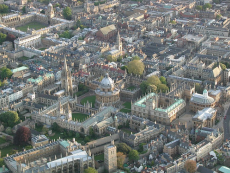
Thomas Hardy (1840-1928) was one of the most famous, as well as controversial, English novelists and poets of his generation. His last novel Jude the Obscure, written in 1895, was met with so much controversy by critics (with one bishop taking it upon himself to burn a copy of it and then brag that he had done so in the Yorkshire Post) and the general public that some suggest it put him off writing novels for good. Part of the reason for this reaction was perhaps that the book was read as an indictment against marriage and the traditional family structure.
The novel certainly does seem to question society’s construction of marriage, though its critique appears to point more towards reform than its complete dissolution. But it is by no means confined to this subject. It is also a story of survival, about trying to live in what was still a very harsh world.
We first get a sense of this when Jude, the novel’s protagonist, has just married his first wife Arabella and they are faced with having to kill a pig they have fattened over the autumn so they can its meat for money. Jude wants to kill the pig quickly so as to be humane, but Arabella tells him that bleeding the pig too quickly will reduce the quality of the meat, saying “Don’t be such a tender-hearted fool! […] he must die slow.” For Arabella, the only which matters is that the meat the pig provides is as good quality as possible so that they can get as much money for it as they can. He is a romantic; she is a pragmatist. Arabella is a survivor, she is resilient to the harshness and cruelty of the world; Jude is not. (Note that Arabella sounds very similar to the word “arable” – a word used to describe fertile land, ideal for growing crops, thereby emphasising her innate ability to stay alive.)
It is arguably because of this fundamental difference between the two characters that they soon split up, with Jude travelling on from Marygreen to Christminster. At Christminster he encounters his cousin, Sue Bridehead, who he comes to fall in love with and as Jude is trying to convince her to be with him, in spite of her engagement to his childhood tutor Mr Phillotson, he admits to her, “I belonged to an odd and peculiar family – the wrong breed for marriage.” He suggests that there is something innate running through his family line which makes them ill-suited to a lifelong commitment, the use of the term “breed” again connecting this point to the idea of survival. They are not resilient enough for their marriages to last with all the many pressures which are placed on them. Hardy is steadily establishing a sense throughout the book that Jude Fawley and his kind are simply not built for this world.
It is a sense which eventually comes to a head when, having left Christminster, Jude and Sue return to it in search of lodgings, with their three children, the eldest of whom, Little Father Time, is actually Arabella’s rather than Sue’s. Under questioning, Sue concedes to Little Father Time that it is partly because of him and his siblings that herself and Jude are having such problems finding a permanent place to stay, because it is suspected they are unmarried (which is true). Convinced that he and his siblings are no more than a hindrance, Little Father Time hangs his siblings and himself, leaving a note saying “Done because we are too menny.” In the aftermath, a doctor tells Jude that there is a generation of children being born who have no ingrained will to live – suggesting that this problem extends beyond Jude’s offspring.
Soon afterwards, having split from Sue, who returns to Mr Phillotson her free spirit having been broken by the death of her children, and having returned to Arabella, Jude himself falls ill and dies. The novel thus concludes on a very dark illustration that society is built for the fittest and is hostile to those who seek out a lifestyle which runs counter to the norm – with Arabella being the only character that comes off reasonably well in the end.
Thomas Hardy’s Jude the Obscure is therefore not a read for the faint-hearted.
Image: By SirMetal [Public domain], via Wikimedia Commons

0 Comment:
Be the first one to comment on this article.